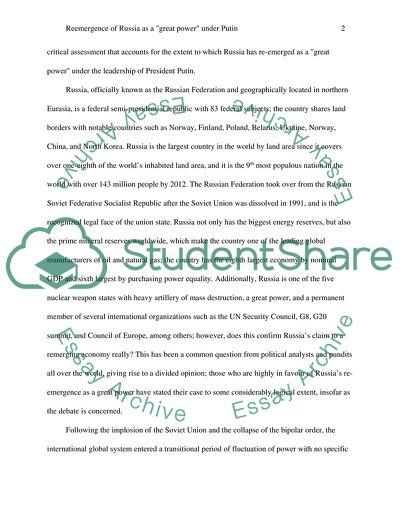Cite this document
(Re-Emergence of Russia as a Great Power under Putin Essay, n.d.)
Re-Emergence of Russia as a Great Power under Putin Essay. https://studentshare.org/politics/1805239-politics-critically-assess-and-account-for-the-extent-to-which-russia-has-re-merged-as-a-great-power-under-putin
Re-Emergence of Russia as a Great Power under Putin Essay. https://studentshare.org/politics/1805239-politics-critically-assess-and-account-for-the-extent-to-which-russia-has-re-merged-as-a-great-power-under-putin
(Re-Emergence of Russia As a Great Power under Putin Essay)
Re-Emergence of Russia As a Great Power under Putin Essay. https://studentshare.org/politics/1805239-politics-critically-assess-and-account-for-the-extent-to-which-russia-has-re-merged-as-a-great-power-under-putin.
Re-Emergence of Russia As a Great Power under Putin Essay. https://studentshare.org/politics/1805239-politics-critically-assess-and-account-for-the-extent-to-which-russia-has-re-merged-as-a-great-power-under-putin.
“Re-Emergence of Russia As a Great Power under Putin Essay”. https://studentshare.org/politics/1805239-politics-critically-assess-and-account-for-the-extent-to-which-russia-has-re-merged-as-a-great-power-under-putin.


